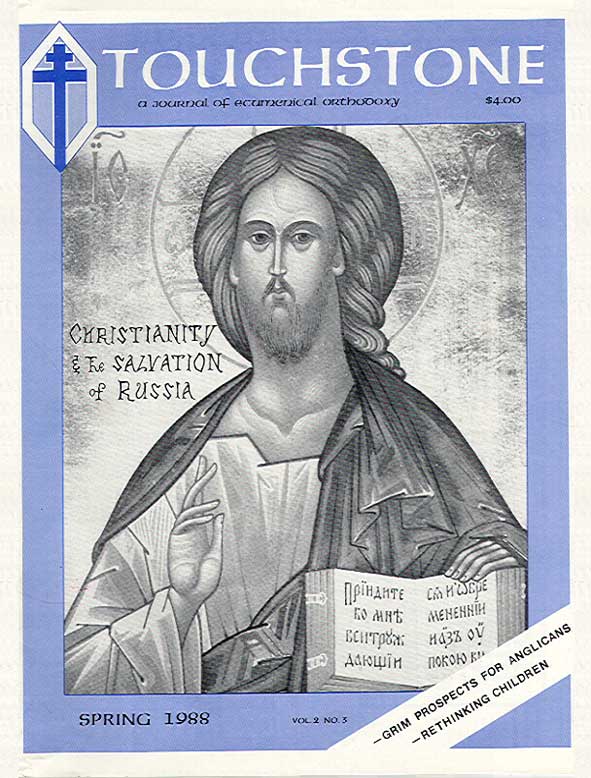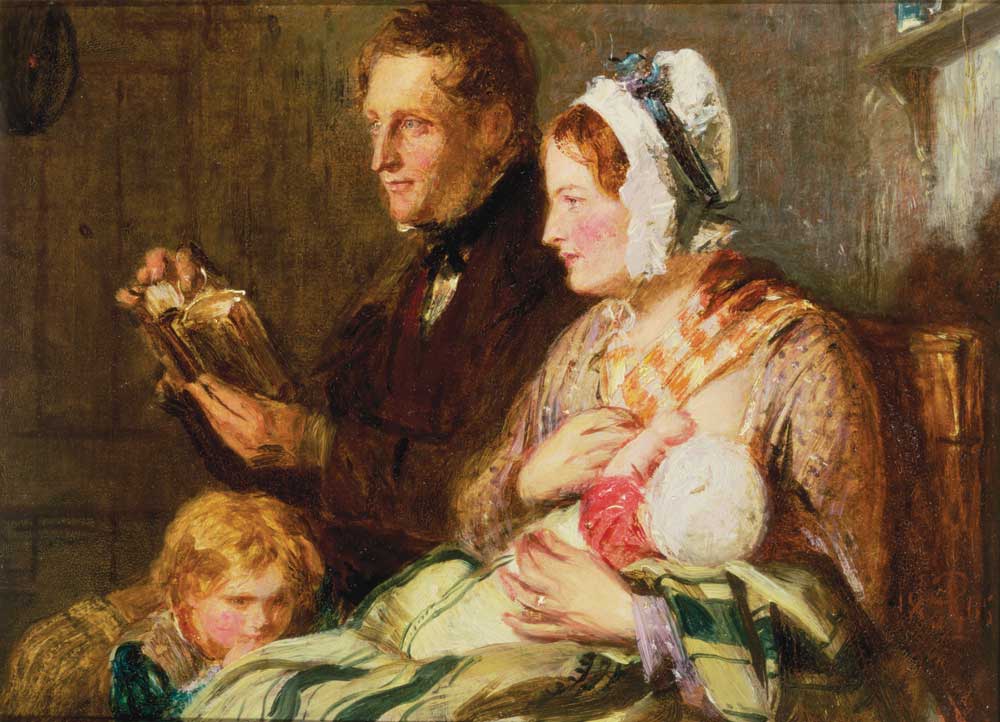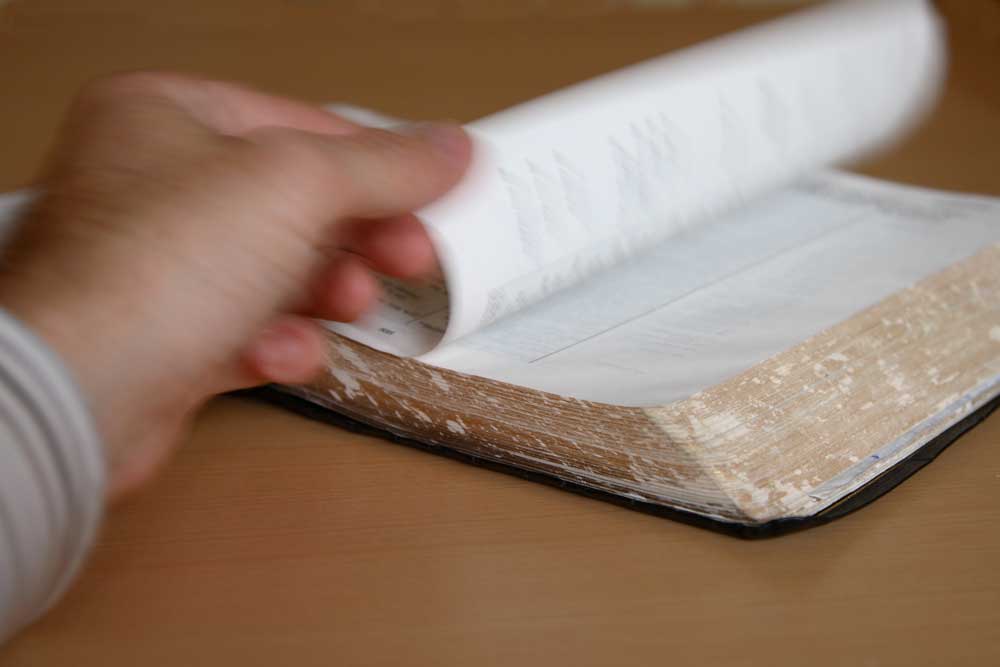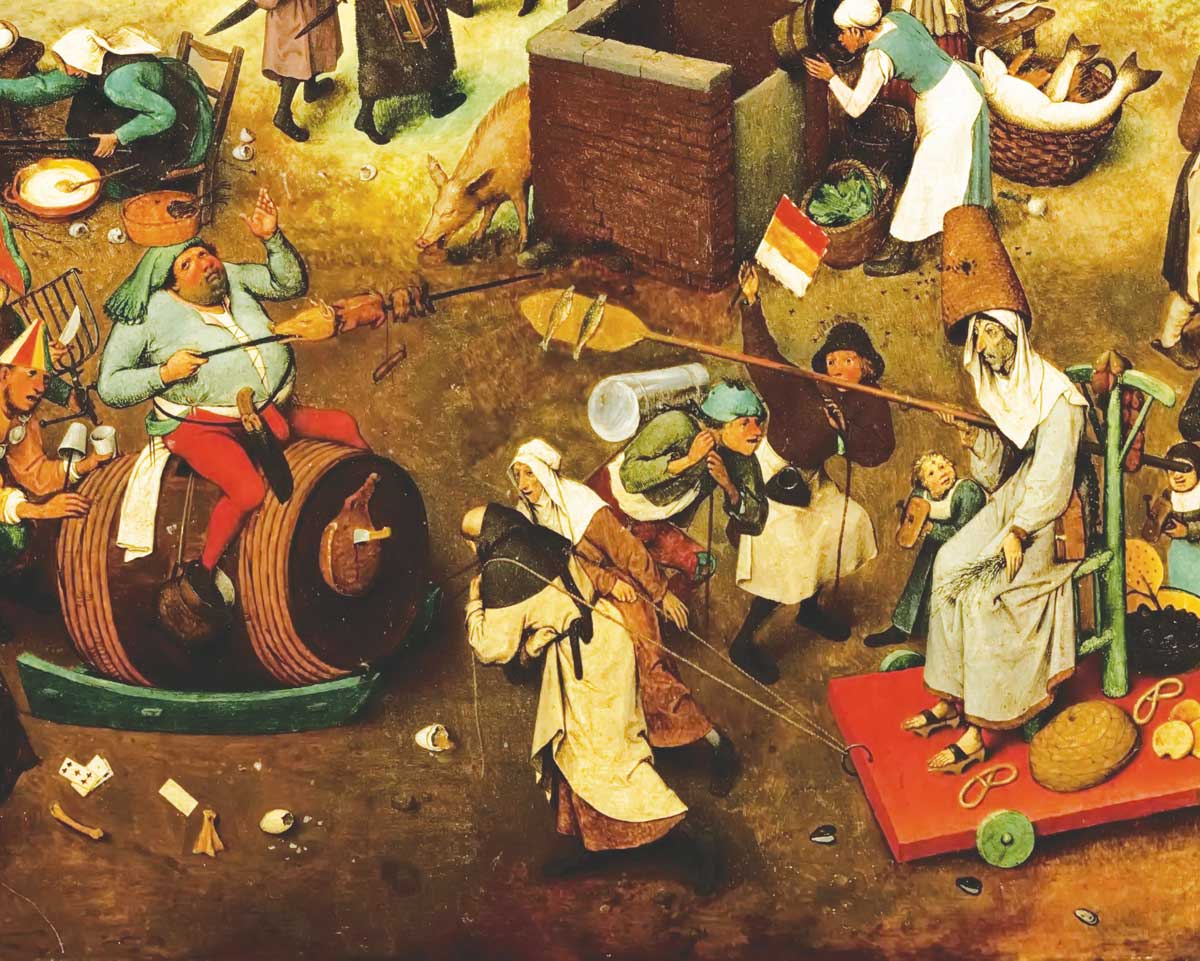Whither Episcopalians?
by Patrick Henry Reardon
If one’s familiarity with the Episcopal Church is informed solely by its quasi-official journal The Episcopalian these days, there would appear to be no reason for anxiety about the future of that denomination. Reflecting the official optimism of Presiding Bishop Edmund Browning, the prospects for Episcopalianism fairly scintillate on those pages. Its clergy are happy, its missions and ministries thriving, its adversaries scarcely mentioned, and only smiling faces are photographed for publication. The regular column by Richard Crawford continues to chant the praises of Anglican enlightenment and inclusiveness. Who could want a better church?
In fact, however, a number of Episcopalians wonder if the denomination portrayed in that monthly paper is the same one they belong to. Articles on the front pages of the secular press certainly paint a different picture: a female priest artificially impregnated (to the applause of Bishop Paul Moore of New York), a fellow who obtains a sex-change and promptly takes vows as a nun, an English priest who commits suicide after writing an article critical of the Anglican Communion generally and the Episcopal Church in particular, the liturgical solemnization of homosexual “marriages” in some dioceses, Bishop Spong of Newark denying that the Bible is the Word of God (among many things that he denies), and so forth. Perplexed by this sort of thing, the average Episcopalian may not be totally reassured by the avuncular grin of Bishop Browning beaming out at him from the pages of The Episcopalian.
Signs of serious trouble are apparent, however, in other journals. The front page of February’s The Evangelical Catholic, for example, bore the headline “Anglicanism at the Eleventh Hour”, and the April 17 issue of The Living Church featured an article entitled “What on Earth is Happening to Us?” by a bishop not known to be either conservative or reactionary.
Well, exactly what on earth is happening to us? Trouble, mainly. For starts, the Episcopal Church is disappearing. The Gallup Organization recently disclosed that the Episcopal Church lost a third of its already low “preference level” since 1967, dropping down from 3 to 2 per cent, and the Church’s own membership audits indicate that the rate has accelerated dramatically in the past few years. The 1988 Episcopal Church Annual shows that between 1985 and 1986 (Browning’s first year as Presiding Bishop) the Episcopal Church lost a total of 234,915 members (8.58%). Adult confirmations during the same period were down by 14.71%. Figures for the years from 1986–88 are not yet available, but there is no reason to believe that they would be encouraging. At its current rate of attrition the Episcopal Church is less than one generation from extinction.
Faced with such figures, one would hope that alarm would suggest itself as a reasonable attitude to those preparing for the Episcopal Church’s General Convention this July. Nothing of the sort. When the Blue Book of the Convention’s agenda was released at the beginning of May, it became clear that the Convention’s attention would not be directed much to the threatening demise of the institution itself. Instead it will spend time considering (and almost certainly approving) a new “trial liturgy” marked by greater “gender inclusiveness” in language about God. It seems that some folks consider it sexist and oppressive to use words like Lord, Father, Son, King and so on. So the Episcopal Church will begin phasing out such language with its new trial liturgy scheduled for use later this year, a plan of which most Episcopalians are still totally ignorant.
The convention in July will also consider a report of its own special commission on sexual ethics, in which monogamous marriage is reduced to an ideal rather than an absolute norm for sexual activity. Once again this was all done in secrecy until the secular press blew the whistle. This report on sexual ethics will be the most hotly debated, one suspects, and it may even be defeated until the next Convention in 1991.
Meanwhile there is a good chance that the Episcopal Church will elect its first woman bishop this year, something that could quite dramatically affect its membership roles.
Critical reactions to such developments were to be expected. Dean John Rodgers of Trinity Episcopal School for Ministry led the formation of a new coalition, called Episcopalians United, to resist innovations in sexual morality, to stop experimentation with language about God, and to discourage the election of a female bishop as too divisive at this time. These would seem to be modest, reasonable goals, nor can one imagine a less bellicose association of grievance and reform than Episcopalians United. For challenging the official optimism of Bishop Browning, however, Episcopalians United has had to do without much support from the bishops of the Church, some of whom have become its sharp critics, even to the point of calling it schismatic.
Nothing could be further from the truth. Bringing together clergy and laity from Anglo-Catholic, Evangelical and Charismatic backgrounds, Episcopalians United is only the most recent and heroic attempt to do what Anglicanism has tried for centuries to do: maintain and even love a communion in spite of internal differences that appear irreconcilable to the outsider. The real question is how long Episcopalians United can continue to overlook the deep doctrinal differences about Sacraments and Order among its own members. Those differences make it very improbable that Episcopalians United could ever become the nucleus of a new denomination, even if it wanted to.
Much the same may be said for a recent, informal and world-wide coalition of conservative Anglican bishops opposed to the consecration of a woman bishop. On February 17, Ash Wednesday, this group issued a proclamation warning that such a consecration would call into question the very continuance of the Anglican Communion. That is about as close to fightin’ words as Anglicans have heard since the time of Charles II and the Restoration, and nearly one hundred bishops have put their signatures to it. Is it a real threat?
Patrick Henry Reardon is pastor emeritus of All Saints Antiochian Orthodox Church in Chicago, Illinois, and the author of numerous books, including, most recently, Out of Step with God: Orthodox Christian Reflections on the Book of Numbers (Ancient Faith Publishing, 2019).
bulk subscriptions
Order Touchstone subscriptions in bulk and save $10 per sub! Each subscription includes 6 issues of Touchstone plus full online access to touchstonemag.com—including archives, videos, and pdf downloads of recent issues for only $29.95 each! Great for churches or study groups.
Transactions will be processed on a secure server.
more on protestant from the online archives
more from the online archives
calling all readers
Please Donate
"There are magazines worth reading but few worth saving . . . Touchstone is just such a magazine."
—Alice von Hildebrand
"Here we do not concede one square millimeter of territory to falsehood, folly, contemporary sentimentality, or fashion. We speak the truth, and let God be our judge. . . . Touchstone is the one committedly Christian conservative journal."
—Anthony Esolen, Touchstone senior editor













